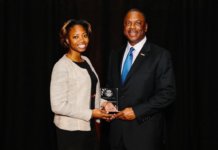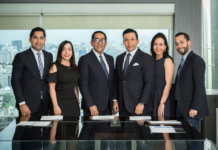Interview with Prof. Justin Craig, Director of the Center for Family Enterprises at the Kellogg School of Management at Northwestern University.
About 20 years ago, Prof. Lloyd Shefsky approached Dean Don Jacobs of the Kellogg School for Management at Northwestern University in Chicago with the idea for a center dedicated to family enterprises. With in-principal approval in hand, Lloyd then approached proud Northwestern alumni, family business research pioneer, and renowned academic Dr. John Ward to join him. Today, the Kellogg Center for Family Enterprises (KCFE) is recognised around the world as one of the leading institutions, offering programs to MBA and executive students. Currently at the helm is Prof. Justin Craig who joined Kellogg a few years ago to help steward the Center into its next phase.
Prof. Craig is a Clinical Professor of Family Enterprise as well as a researcher and author. His recent book, Leading a Family Business: Best Practices for Long-Term Stewardship, explores the differences that manifest between family and non-family enterprises. The book is co-authored with longtime mentor and collaborator, Prof. Ken Moores.
In this interview with Tharawat Magazine, Prof. Craig discusses the Center, its research priorities, and how it looks to provide value for family-owned businesses in the coming years.
As the Director of the Center for Family Enterprise at Kellogg, you’re following in the footsteps of John Ward, one of the family business field’s founding fathers. In your view, what have been John’s most significant contributions to the field?
It’s difficult to succinctly capture that because John’s body of work and contribution has been so significant. But someone recently reminded me that John was one of the first to put science behind the conversation around the family enterprise. He brought evidence into it all. Essentially, at a time when it was hard to get data, he had accessed longitudinal data. John has always been a practical theorist, a ‘pure’ professor at heart, and he was out in the field doing what we call action research. He was working with families to better understand them with the intent of bringing that knowledge back into the classroom and to inform his case study writings. He is a traditionalist as far as the academic world goes. And while he went on to work with many families across the world, his gift is that he stayed very close to his academic roots. That is, to me and many others, what set him apart and he remains involved in the KCFE in an Emeritus Professor capacity.
But we can’t talk about Kellogg without also mentioning Dr. Ivan Lansberg. Ivan is our Director of Executive Education Programs and has long been instrumental in KCFE. We are fortunate to have two of the best of the field working in our team.

What is your vision for the Center?
The vision for the Center is not my own. Throughout Lloyd and John’s transition, the strategy was very clear: to ensure that the knowledge and impact created by the ‘founding generation’ is institutionalised within the Kellogg School of Management.
We are getting closer to realising this vision because we are finally at the stage of the lifecycle of family business research where the field commands legitimacy. Now we can reach out to other disciplines such as marketing and finance and create a more expansive discussion. We want to make sure that we have leading thinkers in the world from all disciplines contribute to the field. Now is the time for them to contextualise their science in this space, and we are looking to build on the unprecedented platform provided by John and the others. We do feel as if we are standing on the shoulders of giants around here.

There has been a noticeable increase of family enterprise and family business centers around the world. How does Kellogg respond to that phenomenon?
We learn from business-owning families with long histories – they are our teachers, and our mindset is akin to the families who have shared their stories with us. For us, it is important that we focus on our mission and the activities that we can control. Specifically, as Danny and Isabel Miller stated so eloquently, “We pursue a substantive mission and do something important exceedingly well.” We genuinely applaud that others are now taking up the conversation. My role with the Family Business Review for the last ten years has made me a witness to the benefits of more voices and views in our field. We need this conversation to continue and to mature.
How can family business academia keep up this positive momentum?
That’s a pretty simple question to answer because at the KCFE we see our discipline as a meta-discipline. The family enterprise context really does touch everybody, and it’s one in which most other academic disciplines can contribute to the conversation. Whether it’s the economists, philanthropists, psychologists, or lawyers, the family business field provides rich opportunities for all.
Here at Kellogg, we have intentionally started to plant seeds in the different departments and schools throughout the Northwestern campus. The reason we put in this kind of effort is because it can lead to exciting new research and an increase in knowledge for the field. An example of this can be seen in a study that we are just launching now on ‘sibships’, or sibling-relationships. We have one of the leading relationship scientists in the world 200 meters from my door, and when I mentioned to him how interesting his research was and how I could give him a context where his expertise can add tremendous value, he was fascinated and ultimately joined us in our research.
Digitisation is a hot topic throughout academia. Do you feel that those in the family business field adopt emerging technologies well into its activities?
The cycle of premium quality research is slow, but it needs to be so in order to provide the robustness that it requires. Technology may be able to enhance that process a little bit, but the meticulous process remains fundamental, and it will continue to stay that way going forward.
Generally speaking, we don’t want to be too fast in our research because that approach may cause the findings to lack depth and proper roots. And whenever there aren’t strong roots, the tree always falls over. We need to make sure that the information in our research is based on foundational sources.

[ms-protect-content id=”4069,4129″]
How does the Center currently go about merging real-world experience with academic theories for its students?
We are focused on conducting relevant, user-inspired research that we can translate into theory-driven, evidence-based frameworks. Students who are well equipped with these frameworks are sure to do well long after they leave our classrooms. Whether they are MBA, EMBA, or Executive Education students, they need to understand the ‘why’ and then to balance the ‘why’ with the ‘how’. Our approach in all our programs is to develop a ‘learning lab’ environment in which students learn with and from each other. We provide the proven concepts, they provide the context and, given the heterogeneous nature of the families in our classes, the learning outcomes typically exceed their, and our, expectations.
What do you feel is going to be your greatest priority for the Center now?
Again, the KCFE draws its inspiration from long-lived business-owning families. We are intent on keeping the philosophies of our founding generation while continuing to reinvent ourselves. To ensure that the family enterprise as a scholarly pursuit is an integral part of Kellogg and to Northwestern, we are laser-focused on building bench strength with thought leaders and practitioners that are genuinely committed to better understanding the challenges and opportunities of enterprising families.
One tangible example of how we are moving forward is the campus-wide studies on trust called The Trust Project. Trust as a research topic touches so many disciplines and we are a part of that initiative. Given that trust within generations, between generations, and among stakeholders has long been the foundation of the KCFE Executive Education programs, John and Ivan have long been at the vanguard of this conversation.
[/ms-protect-content]













